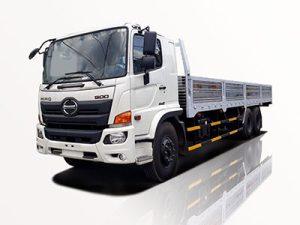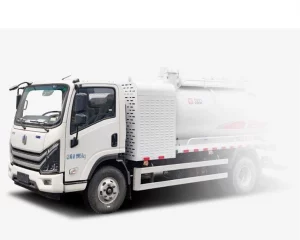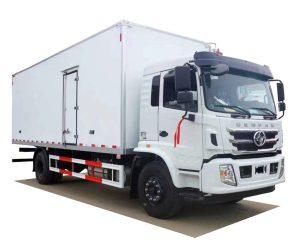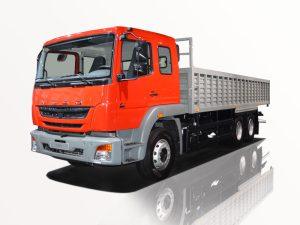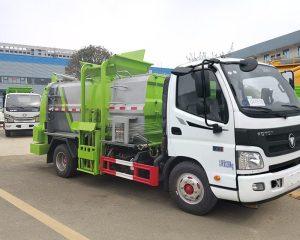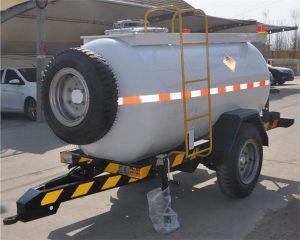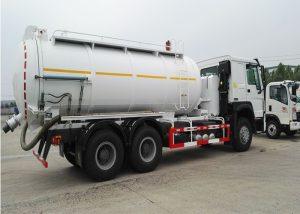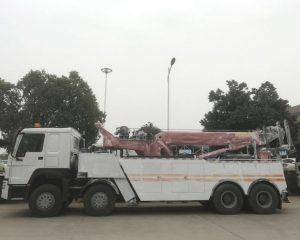Monday to Saturday - 8:00 -17:30
Everything You Need to Know About Small Garbage Trucks
In today’s world, where waste management is a significant concern, small garbage trucks are becoming increasingly vital. This article provides an in-depth look at small garbage trucks, their advantages, various types, the technology behind them, and practical tips for choosing the right model for your needs. Whether you are a waste management professional, a city planner, or a business owner, understanding the nuances of these vehicles will help you make informed decisions.
Understanding Small Garbage Trucks
What Are Small Garbage Trucks?
Small garbage trucks, also known as compact garbage trucks, are specially designed vehicles for municipal and commercial waste collection in urban areas. Their compact size allows them to navigate narrow streets and access locations where larger trucks cannot operate efficiently.
Importance of Small Garbage Trucks in Waste Management
Small garbage trucks are crucial in urban waste management. Here are some reasons for their importance:
- Accessibility: Their compact size enables them to reach hard-to-access areas.
- Efficiency: Smaller trucks can often operate quicker than larger trucks, allowing for more frequent collection schedules.
- Environmentally Friendly: Many models are designed to be fuel-efficient and produce fewer emissions.
Types of Small Garbage Trucks
1. Compact Rear Loader Trucks
Compact rear loader trucks are designed for collecting waste from residential areas. They maximize space and minimize the need for bulk collection, making them ideal for city streets.
2. Side Loader Trucks
Side loader trucks are equipped with automated tools for lifting and emptying waste bins. They enhance efficiency by allowing drivers to stay seated while collecting trash.
3. Hook Lift Trucks
These trucks are versatile and can switch between different containers, including dumpsters and flatbeds. Hook lift trucks are ideal for construction sites and multi-purpose waste collection.
4. Roll-Off Trucks
Roll-off trucks are designed to transport large containers, often used in industrial waste management. They are known for their efficient unloading capabilities.
5. Electric Small Garbage Trucks
As cities focus on sustainability, electric small garbage trucks are becoming more common. These trucks are quieter and produce no emissions, making them an environmentally friendly option.
The Technology Behind Small Garbage Trucks
1. Automated Loading Systems
Modern small garbage trucks often come equipped with automated loading systems that allow for efficient waste collection without needing manual labor.
2. GPS Navigation
GPS technology has become integral in optimizing waste collection routes, reducing fuel consumption and operational costs.
3. Telemetry and Monitoring
Telemetry systems allow fleet managers to monitor truck performance and usage, ensuring efficiency and timely maintenance.
Practical Tips for Choosing a Small Garbage Truck
1. Assess Your Needs
Evaluate your specific requirements, such as the type of waste you collect, the frequency of collection, and the areas you service.
2. Consider the Size of the Truck
Choosing the right size is crucial. Smaller trucks are easier to maneuver but may require more trips for larger volumes.
3. Look for Fuel Efficiency
Opt for models that offer better fuel efficiency, as this will significantly reduce operational costs over time.
4. Check for Maintenance Support
Ensure you have access to reliable maintenance services, as this will prolong the life of your vehicle and keep it running efficiently.
5. Explore Financing Options
Financing can make purchasing a small garbage truck more manageable. Consider loans or leasing options that best fit your budget.
Case Studies and Practical Examples
1. City of San Francisco
San Francisco employs a fleet of small garbage trucks for their zero-waste initiative. By using smaller vehicles, they can navigate Alamo Square and Dolores Park efficiently while ensuring eco-friendly waste management.
2. Chicago’s Automated Side Loaders
Chicago has successfully integrated automated side loaders into its fleet, leading to increased collection efficiency and reduced labor costs. The automation allows one operator to handle multiple pickups with ease.
3. Green Waste Collection in Portland
Portland utilizes compact electric garbage trucks for residential green waste collection. Their use of electric vehicles has significantly reduced local emissions, aligning with the city’s sustainability goals.
Maintenance Tips for Small Garbage Trucks
1. Regular Inspections
Conduct routine inspections to catch any mechanical issues before they become significant problems.
2. Keep Tires Properly Inflated
Maintain proper tire pressure to ensure optimal fuel efficiency and safety on the road.
3. Monitor Fluid Levels
Check engine oil, brake fluid, and coolant regularly to avoid any performance-related issues.
4. Clean Your Truck Regularly
Cleaning your garbage truck regularly not only keeps it looking professional but also prevents corrosion and extends its lifespan.
Cost of Small Garbage Trucks
The cost of small garbage trucks can vary widely based on several factors, including type, features, and manufacturer.
| Type | Average Cost |
|---|---|
| Compact Rear Loader | $100,000 – $150,000 |
| Side Loader | $120,000 – $170,000 |
| Hook Lift | $150,000 – $200,000 |
| Roll-Off | $100,000 – $160,000 |
| Electric Small Garbage Truck | $200,000 – $300,000 |
Future Trends in Small Garbage Trucks
1. Increased Automation
As technology continues to advance, more automated solutions will be integrated into small garbage trucks, making waste collection even more efficient.
2. Rise of Electric Vehicles
The move towards sustainable practices will likely see an increase in electric small garbage trucks, helping cities reduce their carbon footprints.
3. Smart Waste Management
With the integration of smart sensors, future small garbage trucks will be able to communicate real-time data, such as bin fullness levels and route optimization.
FAQs About Small Garbage Trucks
1. What is the average lifespan of a small garbage truck?
The average lifespan of a small garbage truck is typically between 10 to 15 years, depending on usage and maintenance.
2. Are small garbage trucks more fuel-efficient than large trucks?
Yes, small garbage trucks are generally more fuel-efficient due to their size and lighter weight, leading to lower operational costs.
3. How often should small garbage trucks be serviced?
It’s advisable to have small garbage trucks serviced at least once every six months, along with regular oil changes and inspections as recommended by the manufacturer.
4. Can small garbage trucks handle commercial waste?
Yes, many small garbage trucks are specifically designed to handle both residential and small to medium commercial waste efficiently.
5. What are the common challenges faced by small garbage trucks?
Common challenges include navigating tight spaces, managing varied waste types, and balancing load capacity with route efficiency.
6. How do I get financing for a small garbage truck?
Most dealers offer financing options, or you can approach banks and financial institutions that specialize in vehicle loans.


